Meditation is a difficult skill to master. In fact, it is a difficult thing to even define, as the art of meditation varies from person to person. It is a practice that goes back through the ages, a practice that has been exercised and revered amongst people from all walks of life, in every country, across religions and philosophies and even embedded in secular lifestyles. There is one fact that can be agreed upon by everyone who meditates – it improves the lives of those who do it.
We’ve talked about the Mental Benefits of Yoga and Meditation before, so the ‘why’ of doing meditation has been covered. Now we want to explore the ‘how’ – how do we meditate?
Why Guided Meditation?
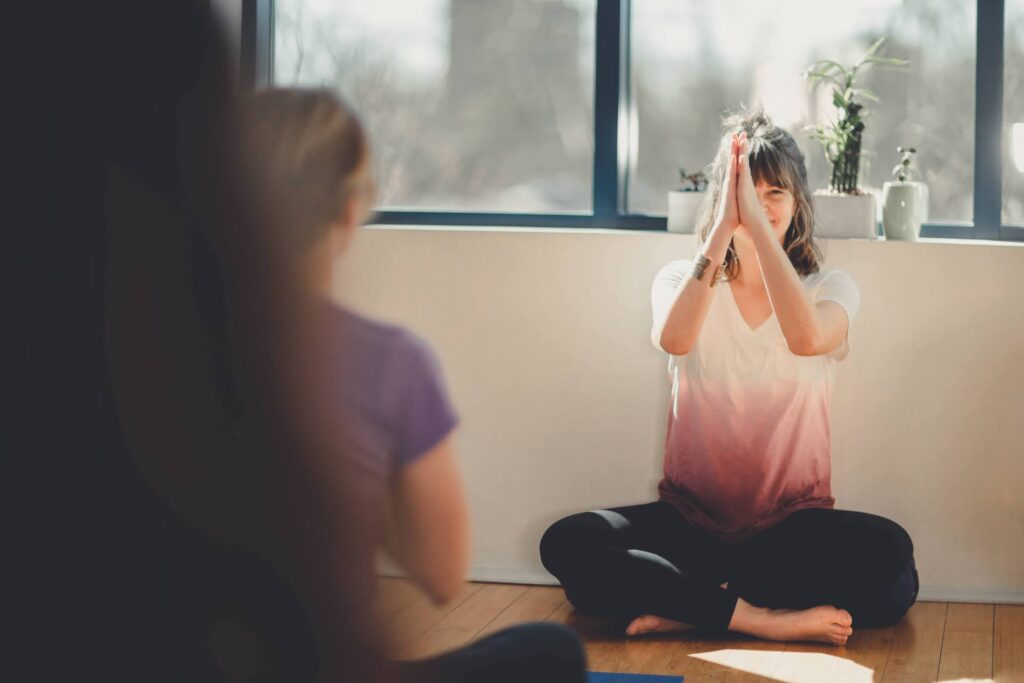
As with any skill you are beginning to learn, having an experienced instructor can help you tap into your potential much quicker than if you are learning alone. Guided meditation is just that – meditation with a guide. This isn’t to say that guided meditation is better than meditating by yourself, but it does provide some scaffolding that some learners appreciate.
So if you are the kind of person who appreciates being shown a path, rather than forging your own way, guided meditation could be the meditation for you.
Find a guide
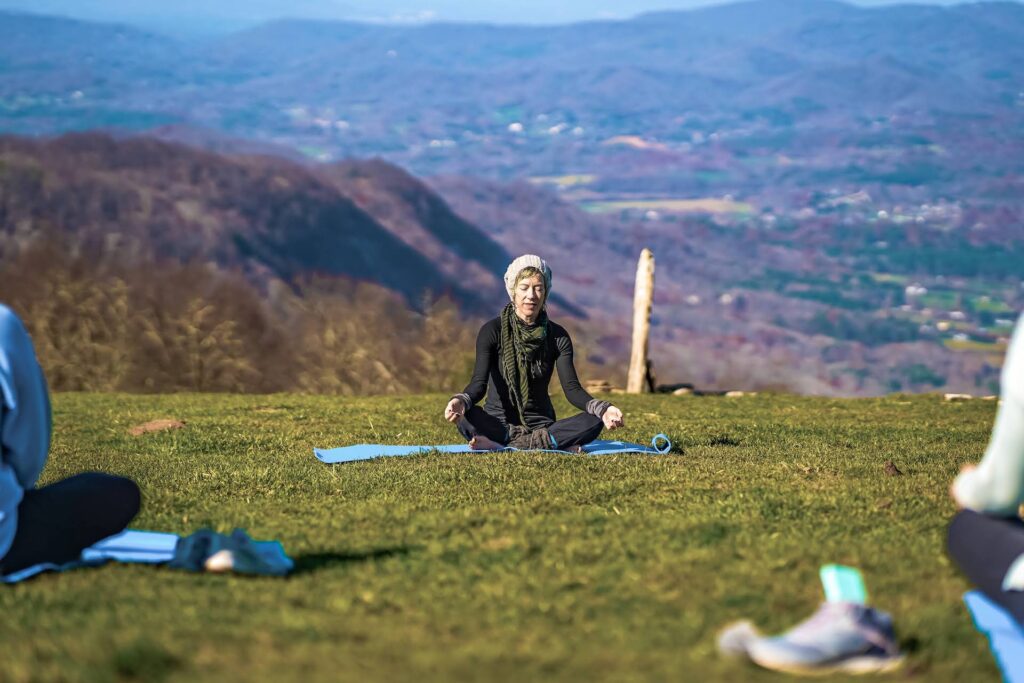
Whilst meditation is often seen as a way to disconnect from the digital world that dominates our day-to-day lives, the internet is a great place to find a guide for your meditation. In fact, here at Asheville, we offer online guided meditation as well as meditation in person, with our Guided Group Meditation.
You can also find other guides in the form of podcasts, apps, video tutorials and mindfulness websites. Essentially what you are looking for is the guide that will suit you best, whether that be a real live expert or a handy app on your phone.
Make Time
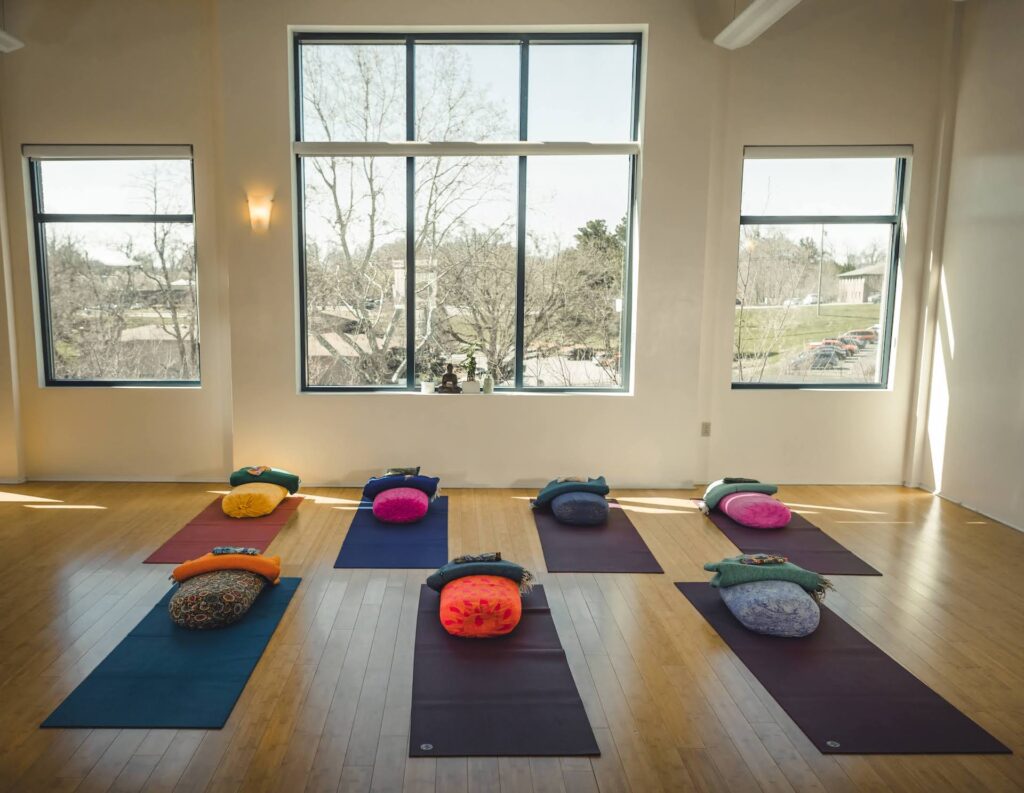
In this day and age, with our busy schedules and our many distractions, it’s very easy to defer things to ‘later’. Only ‘later’ rarely comes. If you want to get started with meditation it is important to make time for it.
Meditation is about taking the time to notice your own mind and connecting with yourself, so it makes sense to practice when your day is at its quietest. Meditating when you wake up is a great way to start your day as it increases your awareness and promotes rational thinking. It’s also a powerful tool for managing stress and anxiety, so it can help get you ready for a busy day ahead.
Another great time to meditate is before you get ready to sleep at night. Studies have shown that meditation can help with insomnia, as it helps relax both your body and your mind.
However, what is most important is that you find the time that suits you best.
When you are just getting started with meditation it can be difficult to focus for a long period of time. Meditating with a guide will help you take the time you need to truly benefit and a guide can help you go from just a few minutes of focus to being able to meditate for as long as an hour or more!
Get the Mood Right!
You can’t be still and focus if you’re sitting in discomfort. Make sure you are in an environment where you feel comfortable. But be careful, if you get too comfy you might just fall asleep!
Pick a place that makes you feel good and enhances your calm. Make sure you aren’t too hot or too cold. Switch your phone to silent and shut out all the distractions of the day. Take a deep breath. Perhaps it helps to have a nice scent in the air? Maybe you want to be outdoors and surrounded by nature?
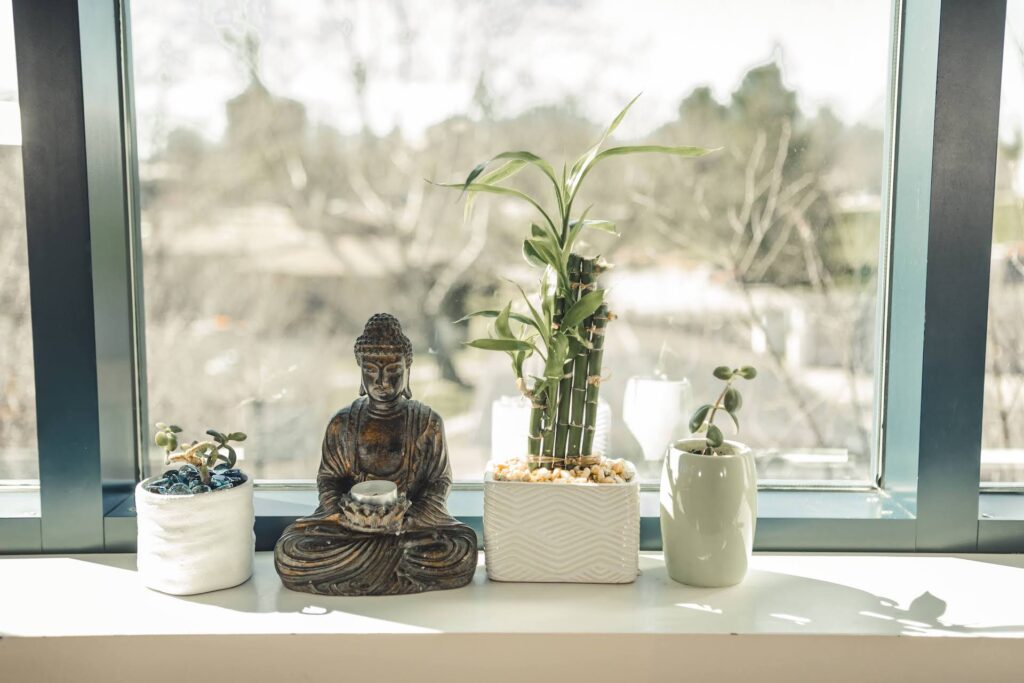
Getting the mood right can do wonders for your meditation practice. At Asheville Wellness Tours, we can do guided meditation in a variety of different settings, including taking you Forest Bathing. You can connect with yourself best when you feel at your most comfortable.
Be Kind to Yourself
(Maybe a group shot here of people looking really happy?)
Learning something new can often be stressful if we tend to focus on only the end goal – ‘being good’ at whatever it is we’re attempting to learn, rather than focusing on the learning itself. With meditation, it’s important to allow yourself to focus more on the journey and less on the destination.
Meditation novices often find the process of sitting still and trying to focus a very difficult thing. Minds wander, and those who are new to meditation might chastise themselves for their lack of focus. However, mind wandering is not a bad thing! It is simply part of our thought processing system.
The goal of meditation is not to stop the thinking process, but rather, to notice thoughts as they arise, and simply not attach to them, letting them pass easefully through the mind like clouds passing across a blue sky.
Similarly, being bored, or struggling to ‘get zen’ isn’t something you should punish yourself for. The harder you are on yourself the harder you will find it to progress on your meditation journey. So, be kind to yourself. Let your thoughts wander and then gently nudge yourself back on the path. The more you practice the better you’ll find you are at focusing and staying on track.
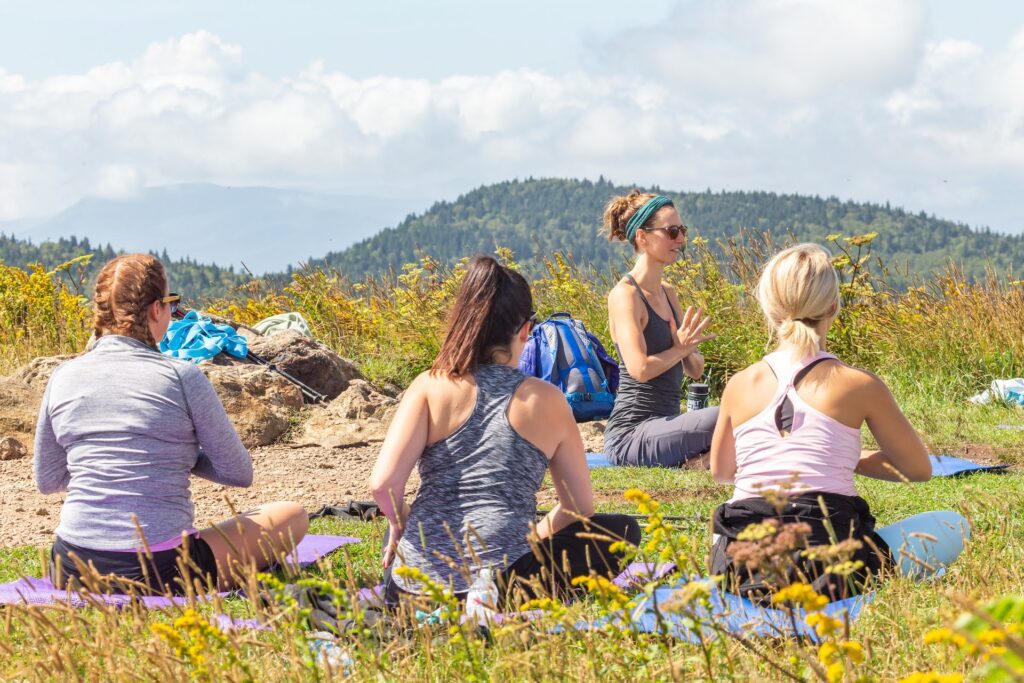
So, there you have it! These are the first steps you can take on your guided meditation journey. We hope you will find the meditation that works best for you. If you want to find out more about different meditations we’ve written about What Kind of Meditation is Best for Inspiration, and we are always open to answering your questions so please don’t hesitate to get in touch!











